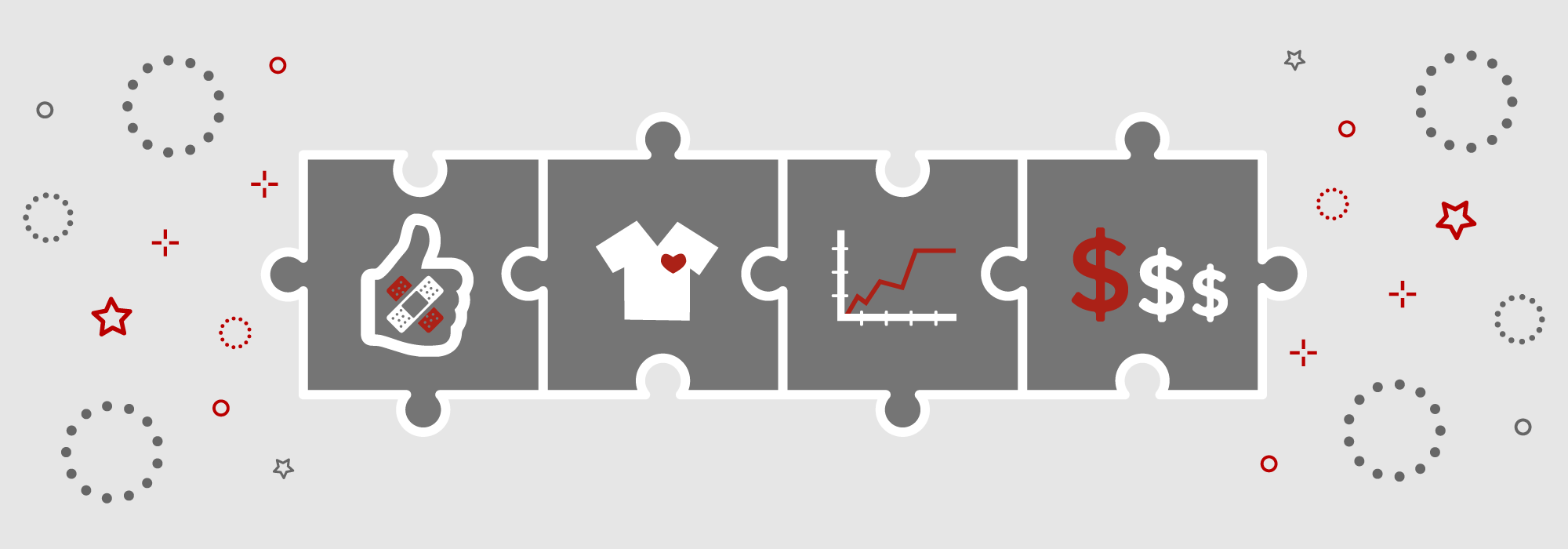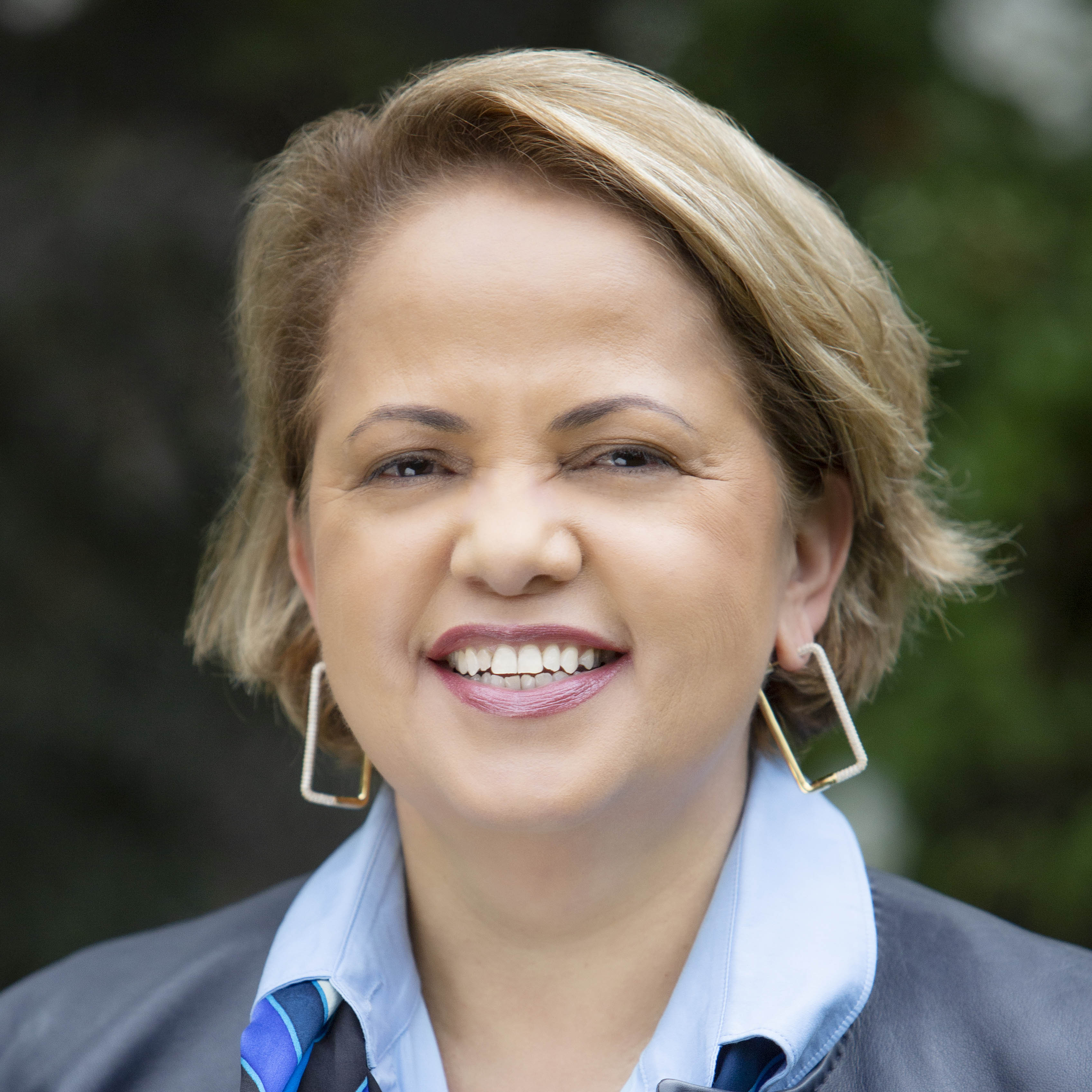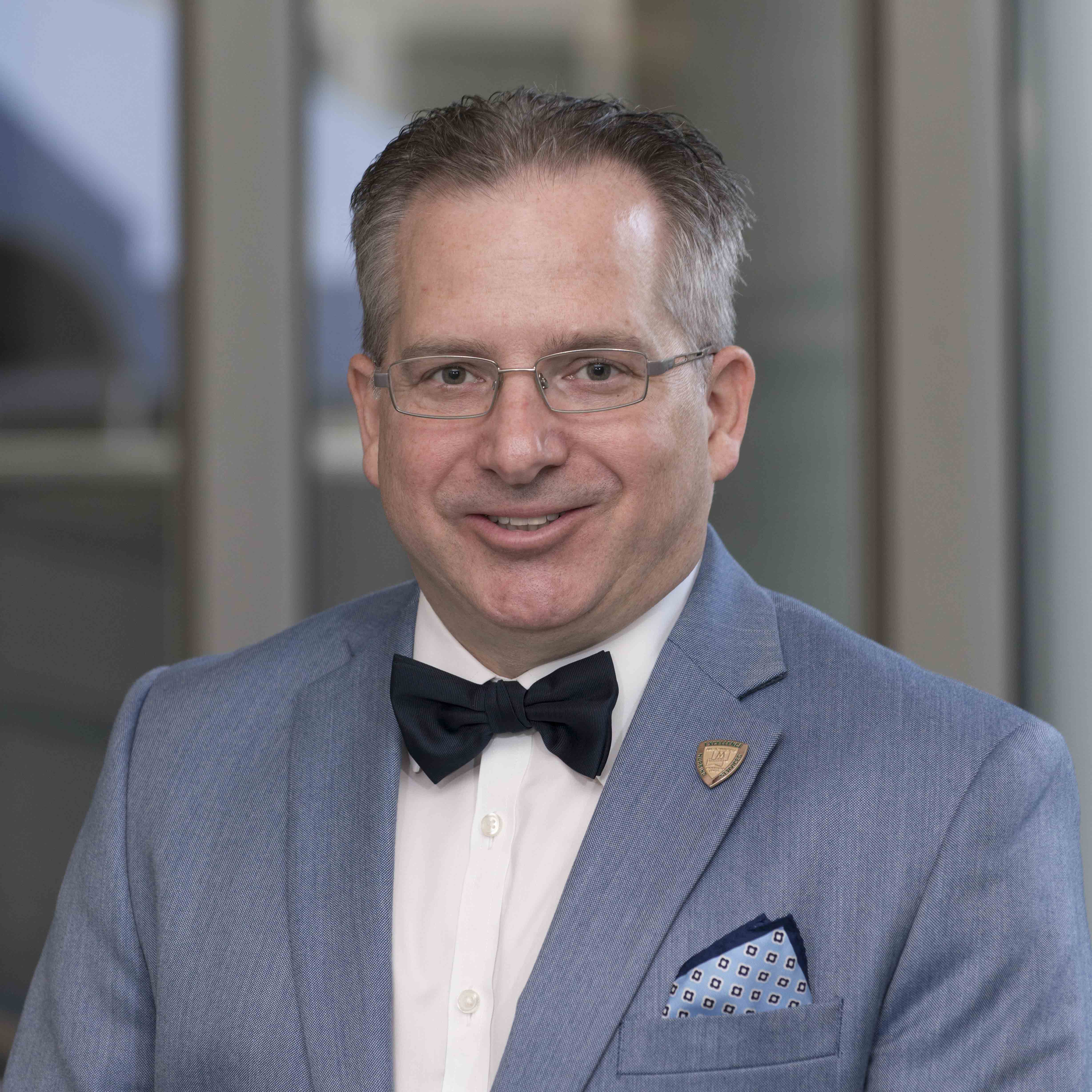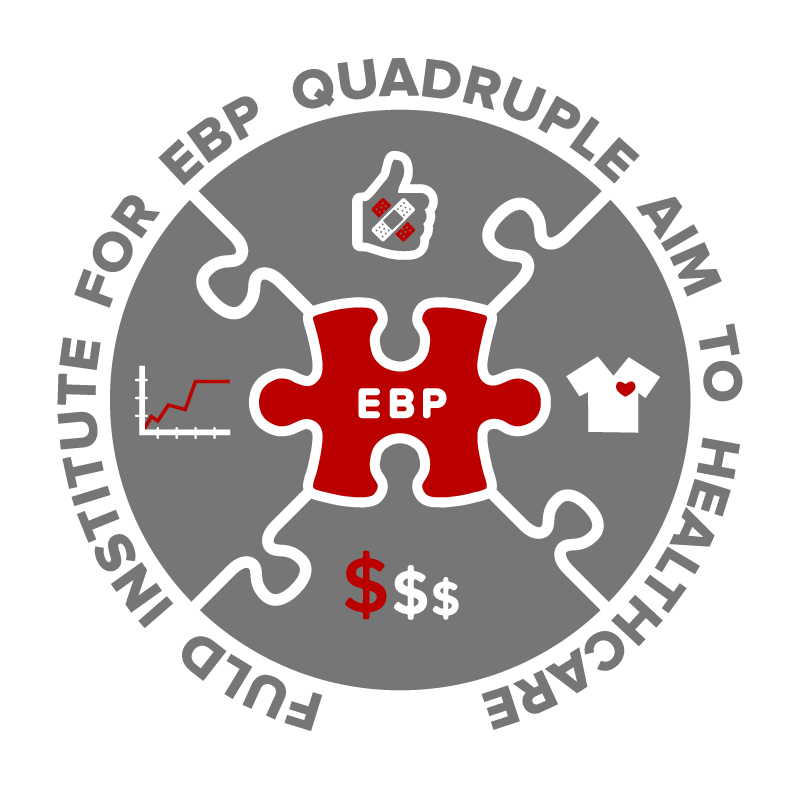
Advancing EBP: Clinicians Dare to Dream
The Summit on Transforming Healthcare through Evidence-based Practice
by Sara Parker
The Helene Fuld Health Trust National Institute for Evidence-based Practice in Nursing and Healthcare (Fuld Institute for EBP) hosted its third biennial national summit, “Transforming Healthcare through Evidence-based Practice,” virtually in September 2021. The two-day summit explored the latest evidence to guide the highest level of practice so that clinicians can continue to improve healthcare quality and safety, policy and patient outcomes.
More than 300 nursing and transdisciplinary clinicians, leaders, academicians and researchers participated in keynote, plenary and concurrent sessions exploring how to use evidence to guide healthcare decision-making and inform policy along with the best interventions to rapidly translate evidence into practice to improve outcomes.
Bernadette Melnyk, PhD, APRN-CNP, FAANP, FNAP, FAAN, the executive director of the Fuld Institute for EBP, opened the summit with a message of hope, while acknowledging the escalation in depression, anxiety and burnout 19 months into the COVID-19 pandemic. She urged participants to get back to dreaming again: “Because nothing happens unless first a dream. If we are aligned with our dreams and our passions, we’ll never feel like we work a day in our lives … Let’s keep dreaming, discovering and delivering a brighter future … through evidence-based practice.” Melnyk and the Fuld Institute for EBP core directors also highlighted the Fuld Institute for EBP’s accomplishments since 2012, including 112 immersions with 4,025 clinicians and educators; the development of the Excellence in EBP and Outcomes in Healthcare Designation; the launch of the first EBP certificate; and in summer 2021, the launch of the inaugural cohort of DNP national post-doctoral Fellows.
The next Fuld Institute for EBP Summit is scheduled for May 24-26, 2023.
For more photos and information, see go.osu.edu/fuldsummit.
Pandemic accelerates need for synthesized evidence

Keynote speaker Karla Soares-Weiser, PhD, MD, editor-in-chief of the Cochrane Library, shared how member crowdsourcing and advances in technology have automated aspects of identification of randomized studies, accelerating the process of systematic review. Cochrane Library is a collection of healthcare specialty databases. At its core is the collection of Cochrane Reviews, a database of systematic reviews that summarize and interpret the results of medical research.
Cochrane has implemented a living systematic review network – reviews are conducted by over 270 network members in live time, as new research becomes available – which has been critical throughout the COVID-19 pandemic. In early 2020, Cochrane created a research bank, where members contribute research and feedback as to which reviews to prioritize. Between April 2020 and September 2021, Cochrane published 35 systematic reviews related to COVID-19.
Soares-Weiser also noted the emergence of infodemic – the overwhelming volume and rapid spread of both accurate and misleading information during a pandemic. Looking ahead, she anticipates the need for researchers and practitioners to better manage the dissemination of evidence-based information.
The intersection of evidence-based practice, innovation, quality improvement and research
The summit’s first plenary panel discussion, “The Intersection of Evidence-based Practice, Innovation, Quality Improvement and Research,” celebrated nurses’ role in advancing science and the art of nursing by pursuing innovative solutions that transform clinical care. Panelists shared their views on how research, EBP, quality improvement and innovation intersect, align and synergize with one another. While research seeks to develop new knowledge, Timiya Nolan, PhD, APRN-CNP, ANP-BC, noted she continuously uncovers additional lines of inquiry in the research process.
“Evaluating structures and processes, working to streamline elements, reducing inefficiencies and providing consistent, high-quality care to promote positive patient outcomes” is the role of quality improvement, according to Molly McNett, PhD, RN, CNRN, FNCS, FAAN.
Michael Ackerman, DNS, RN, described innovation-based practice as filling the gap between what is known and what is needed. Lynn Gallagher-Ford, PhD, RN, NE-BC, DPFNAP, FAAN, chief operating officer of the Fuld Institute for EBP, summarized the relationship among these disciplines as: “Research generates evidence, EBP is the translation of research, our work with quality improvement experts ensures the best practices get into clinical practice as quickly as possible and then innovation asks, ‘What else can we be doing to make it even better?’ What is known is the platform for what can be known.”
In closing, the panelists underscored the importance of eliminating healthcare disparities and measuring the right outcomes – the value realized by the entire population. Nolan also advocated for research that is “Community-based, participatory research – bringing together stakeholders such as clinicians, academics, government and communities to help answer questions and help improve quality of life.”
Memorial Sloan Kettering earns gold-level excellence designation
Executive Director of the Fuld Institute for EBP Bernadette Melnyk announced a new, international designation for hospitals and healthcare systems. The designation, Excellence in Evidence-based Practice and Outcomes in Healthcare, includes a gold level, recognizing organizations that meet or exceed 90% of the award criteria, and a silver level, awarded to those meeting 80–89%.
Melnyk, along with Gallagher-Ford and Linda Connor, PhD, RN, CPN, director of the Excellence in EBP and Outcomes in Healthcare Award program, presented the first gold-level designation to Memorial Sloan Kettering Cancer Center (MSK). Kevin P. Browne, DNP, RN, CNS, CCRN, vice president and deputy CNO, and Erica Fischer-Cartlidge, DNP, CNS, interim director of nursing, evidence-based practice, accepted the award. “Thank you to those who came into MSK and helped us dream big,” said Browne. “We dreamed for something that we never thought could possibly get to where it is today. On behalf of the 4,500 registered nurses at Sloan Kettering, I can’t thank you enough for the journey, the partnership, the true collaboration; for leading us and teaching us and imparting your wisdom upon our nurses.”
Managing the front lines
Day two of the summit began with the panel “Evidence-based Solutions for Workforce Challenges” moderated by Gallagher-Ford, and Sharon Tucker, PhD, APRN-CNS, NC-BC, F-NAP, FAAN, implementation science core director of the Fuld Institute for EBP. Panelists included Beth Tieri, BSN, RN, NE-BC, clinical nurse manager of the Progressive Care Unit at Atlanticare Regional Medical Center in Pomona, New Jersey, and Rosalie Lindo, MS, AGCNS-BC, CEN, clinical nurse manager of the Emergency Department (ED) at New York-Presbyterian Queens Hospital.
At the height of the pandemic, Lindo’s ED took over multiple units within the hospital as well as a tent to accommodate the overwhelming volume of COVID-19 patients flowing through their doors. Her staff came up with creative ways to preserve the limited amount of PPE available, including strategically limiting the number of staff entering areas, and pulling trash and linens from the rooms themselves.
Tieri recounted her greatest challenges: staffing, resources, space and maintaining safe ratios. Her team was initially able to bring in staff who had been furloughed. At the time of the summit, though, with high COVID-19 patient volumes again and non-essential services back on track there were fewer staffing options available. Despite all of the struggles, Tieri concluded, their teams’ shared experiences and empathy have brought them closer together.
Nurse executive to COVID-19 patient

Keynote speaker Kevin P. Browne, DNP, RN, CNS, CCRN, vice president and deputy chief nursing officer of MSK, related his moving experience of becoming a COVID-19 patient himself and highlighted how EBP played a key role in his treatment.
At the onset of the COVID-19 pandemic, Browne was placed into the operations chief role for pandemic planning in MSK’s hospital incident command system, responsible for coordinating day-to-day operations across all of MSK’s locations. In late March, he lost his sense of smell and had a severe headache. He stayed home sick, but five days later he could hardly breathe. “My Memorial colleagues interceded and sent an ambulance to my apartment to rescue me,” he said.
When Browne arrived at MSK, the nursing supervisor called out for rapid response, critical care, anesthesia and a bed in the ICU. He was diagnosed with COVID-19 with multi-system organ failure and pneumonia. Browne recalled that while he was pulling for air, going in and out of ventricular arrythmias and starting to hallucinate, he also worried about exposing his colleagues to the virus. He was confident in his colleagues’ ability to treat him, but worried about his own survival, too. Knowing how advanced his symptoms were, he didn’t feel he could survive on a ventilator, but the intubation tackle box was already in his room.
“I knew clinically … that intubation was the wrong strategy for me,” he said, “and I knew there had to be an evidence-based practice somewhere.”
Fortunately, the rapid response nurse advocated for Browne, listening to his values and preferences, a foundational EBP practice. Instead of intubation, he received high doses of a steroid that was evidence-based for use with H1N1 SARS, and he credits his survival to this evidence-based decision. Browne was able to return to MSK six weeks after he was discharged to thank his team.
“Nurses have been running toward pandemics since our founding,” says Browne. “Nurses have been running toward people in need, despite adversity and challenge. Nurses have been doing this throughout history.” Rather than compare nurses to superheroes, Browne said, “The humanity of nursing as a discipline is the story to be told.”
The evidence on clinician well-being
 Melnyk closed the summit with the latest research on clinician well-being. Even before the pandemic, mental health challenges, such as depression, anxiety and burnout among clinicians was on the rise. She emphasized that the only path to reaching the quadruple aim in healthcare – enhancing the patient experience, improving population health, decreasing costs and improving the work life and well-being of healthcare providers – is through EBP and clinician well-being.
Melnyk closed the summit with the latest research on clinician well-being. Even before the pandemic, mental health challenges, such as depression, anxiety and burnout among clinicians was on the rise. She emphasized that the only path to reaching the quadruple aim in healthcare – enhancing the patient experience, improving population health, decreasing costs and improving the work life and well-being of healthcare providers – is through EBP and clinician well-being.
From poorly functioning teams and an increase in clinical demands to decreased time with patients, medical professionals are experiencing burnout, distress, depression and even suicide at alarming rates. Melnyk shared the relationship between burnout and occupational injury and increased substance abuse, leading to an increase in absenteeism, turnover and medical errors, the third leading cause of death nationally.
Since the onset of COVID-19, conditions have worsened, with one-third of adults experiencing depression or clinical anxiety. In Melnyk’s national study of nurses on the front line during the pandemic, the majority reported suboptimal health and well-being, high levels of stress and burnout, attributing COVID-19 to the worsening of their mental and physical health.
Melnyk called for system changes to address understaffing and 12-hour shifts, while encouraging nurses to prioritize self-care and urging healthcare executives to invest more in building wellness cultures and providing evidence-based programs and resources that are effective in reducing burnout and depression in clinicians. Pointing to resources like the National Academy of Medicine’s Action Collaborative on Clinician Well-being and Resilience, the American Nurses Association’s Healthy Nurse Healthy Nation initiative and the evidence-based brief that the Fuld Institute for EBP and the Health Policy Institute published, Melnyk encouraged participants to advocate strongly for more substantial investments in workplace wellness, which has a substantial positive impact on clinician population health as well as healthcare quality and safety.
In this issue
- Diane Von Ah: Solving Cancer Care Puzzles
- Faye Wattleton: Committed to Women's Health
- Amanda Parker: Finding the Light Within
- Publications with Passion
- New Grants Roundup
- Building Update
- Advancing EBP: Clinicians Dare to Dream
- Bridge Care: Denise Williams
- Student Mental Health Initiatives
- Student Life: Back to Campus
- Health Equity Scholars
- Young Alumni Blog
- Homecoming
- Connie Gallaher: Paying it Forward
- Virtual Trails
